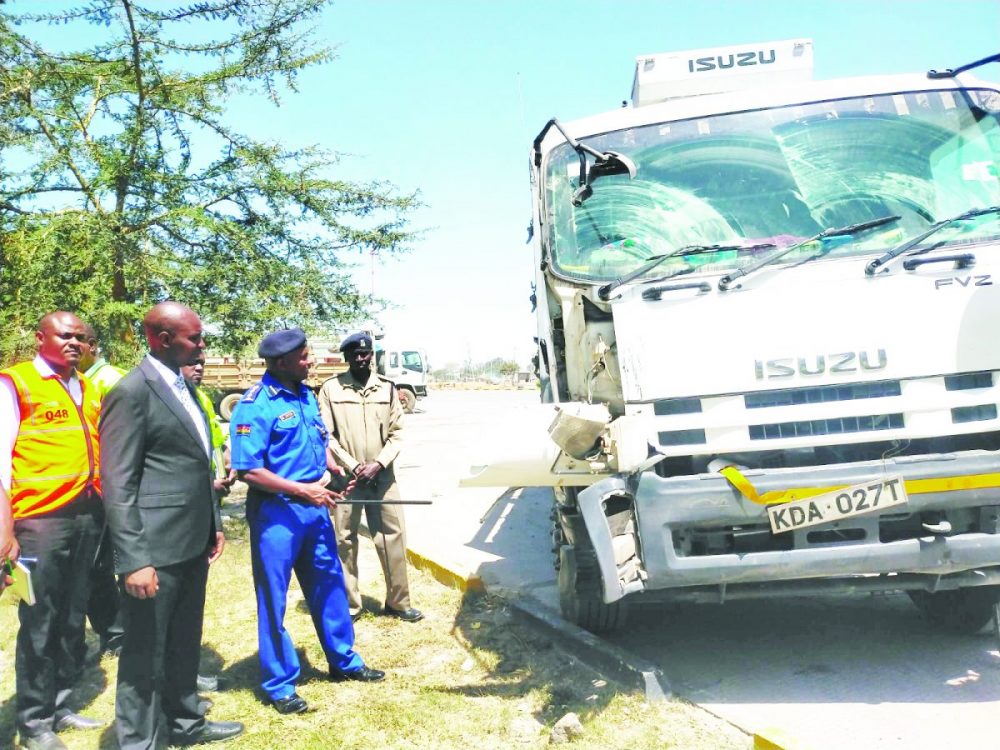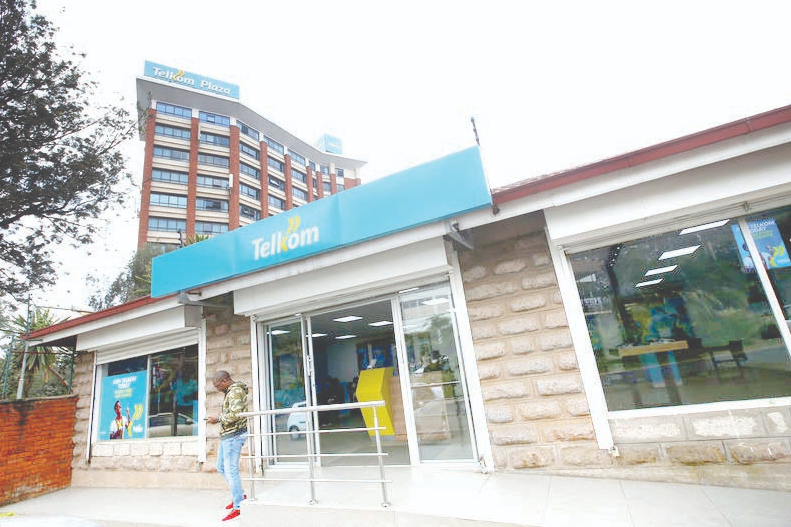Transporter to pay Sh14m for overloading

A transporter has been slapped with a Sh13.9 million fine for overloading on a regional road network which connects Kenya to the rest of the East Africa region.
The Kenya National Highways Authority (KeNHA) yesterday said the 22-wheeler with seven axles had violated the East Africa Community Vehicle Load Control Act, 2016.
Last Thursday, KeNHA officers in collaboration with the axle load enforcement team and highway unit police officers at the busy Mlolongo weighbridge on normal duties impounded the truck that exceeded the normal weight by 24 tonnes and towed it to the station’s yard.
According to KeNHA Axle Load Senior Engineer, Kennedy Ndugire the officers encountered a truck that was overloaded, they stopped it and directed the driver to steer it to the weighbridge.
“However, as they were bringing the vehicle to the weighbridge, another truck driver hit the overloaded one, with an aim of interfering with the process,” Ndugire told journalists at the Mlolongo weighbridge yesterday.
This though did not deter the officers from carrying out their duties, and towed the vehicle to the weighbridge where it was found to be overloaded by 24 tons on Sunday.
“This is against the East Africa Community Vehicle Load Control Act, 2016, which says that once a perpetrator is found guilty of breaching the law, KeNHA deals with him on the spot as per the law so that he pays, offloads the extra weight and proceeds with their journey,” he said.
However, the transporter is yet to oblige, further continuing to incur a parking fee of Sh5, 000 ($50) per day as stipulated in the regional law. And after 60 days, KeNHA will move to court to seek a court order to sell the vehicle.
The lorry had exceeded the normal weight of 54,000 kilos instead loaded it with 78,740 kilos attracting a fine of Sh13, 987,323 under the East Africa community vehicle load act 2016. “We are sending a stern warning to truck and lorry drivers plying Mombasa road and other highways that we will not bend the law.
“We have been given a responsibility of safeguarding our roads from damage, and we are not going to relent on this,” Ndugire pointed out, further indicating that the value of the roads, especially the regional one, exceeds the fine imposed.
Overloaded trucks
He reminded transporters that KeNHA is on high alert to protect the Sh3 trillion worth of the national road network from overloaded trucks. “The Regional Trunk Road Network (Rtrn) stretching from Mombasa-Athi River-Malaba is protected under the East Africa Community vehicle load control Act, 2016 which stipulates that an overloaded truck to be charged a fine of the overloaded tonnes, and offloaded before it’s allowed to continue with its journey for seamless trade within east Africa,” he explained.
According to Ndugire, Kajiado-Mashuru and Garissa road around Mwingi, Kitui and Masinga sand harvesting sources are classified as among roads at high risk from sand trucks that operate mainly at night, to escape the eye of enforcement officers.
“The overloaded trucks mostly use clandestine routes to evade the mobile weigh bridges,” he added, asserting that since they are mandated to ensure the durability of the roads, the officers are committed to ensure that the menace of vehicles overloading at the expense of destroying roads comes to an end. “We will not spare law breakers because we must strive to maintain our roads for the interest of the majority of its users,” he said.
The Officer Commanding the Axle Load Enforcement and Highways Unit Senior at KeNHA, John Gichohi said a scuffle ensued when the vehicle was intercepted as goons tried to free the vehicle. Police had to shoot in the air to scare them away.
However, they managed to arrest some who have been charged in court.
“It took forceful intervention to intercept this lorry. Those who breach the loading law are mostly rogue, and are used to hiring goons to fight back,” he said.
Enforcement unit
He pointed out that the enforcement unit has intensified security to ensure the matter is under control. “For instance, the person who hit the overloaded truck was doing it to make it look like it’s a police case so that they can bribe our officers, but we were alert and had to make sure that we had parked the vehicle at the weighbridge yard,” he added.
Ndugire said KeNHA officers always encounter mobilised goons, road closures, and uncooperative drivers while on duty.
“However, our officers are fully trained and equipped to handle all scenarios out there on their normal day to day work of securing the road asset,” he added.
He explained the highways agency is in the process of deploying more mechanisms to end this particular challenge of overloading.
Ndugire said that gradually they are zeroing in on the rogue transporters as they collaborate more with members of the public, who have been sensitised on the need to protect roads from damage.
“We also have very good customer feedback and engagement framework where we have members of the public informing us. “I can assure you that we receive a lot of intelligence from the public telling us that they have seen vehicles which they suspect could be overloaded, plying on certain routes, and due to such information sharing we are able to quickly go and arrest the situation so that these people don’t have anywhere to hide,” he noted.
Compliance rate
The KeNHA officers record nearly 100 cases of overloaded trucks per day along the Northern Corridor; Mombasa to Malaba and Busia.
Some of these cases, he said, end up in court, where Traffic Act applies, but the other cases are dealt with as per the East Africa Community Vehicle Load Control Act, 2016, where a transporter with an overloaded truck pay, offload and proceed.
In the last Financial Year 2021-2022, KeNHA had a compliance rate to the Axle Load Control law of 98.4 percent, but that has improved currently with a 99.2 per cent following various mechanisms put in place.












